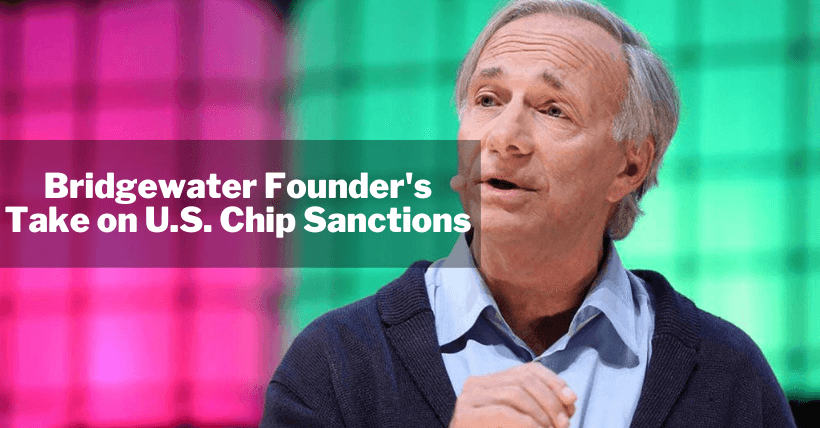Legendary investor and founder of Bridgewater Associates, Ray Dalio, has warned that the U.S. sanctions and restrictions on chip exports to China could inadvertently repeat history, possibly leading to an event similar to the “Pearl Harbor incident” during World War II. Dalio has long advocated for a positive and constructive relationship between the United States and China.
Dalio founded Bridgewater in 1975, and during the Greenwich Economic Forum, he stated to the audience that the current U.S. sanctions on China bear a striking resemblance to the American embargo on Japan during World War II.
In 1940, as tensions escalated between the United States and Japan, the U.S. halted exports to Japan, froze Japanese assets in American banks, and refused to engage in diplomatic negotiations with Japanese officials.
One year later, in December, faced with severe resource shortages and seemingly futile negotiations with the United States, Japan launched an attack on Pearl Harbor.
Dalio is concerned that the recent announcement by the U.S. Department of Commerce to further restrict the export of artificial intelligence chips and chip manufacturing equipment to China could exacerbate tensions, much like similar actions in the 1940s.
Dalio added that the chip embargo is one of several factors adding fuel to the fire, while U.S. officials argue that it’s aimed at stabilizing relations between the two nations. These two major world powers appear to be slowly heading down an irreversible path on some issues.
Dalio has long identified himself as a pro-China advocate. His book, “Principles: Life and Work,” became a bestseller in China after its translation and publication.
Fortunately, Dalio also believes that neither the United States nor China wants to engage in conflict. The reported $16.5 billion net worth Dalio stated, “Neither country wants a war, and everyone is worried about what it would look like because it would be economically and politically devastating.”
Prominent figures like Yellen are also working to strengthen U.S.-China relations. After visiting Beijing this summer, the U.S. Treasury Secretary acknowledged that no single visit can “solve our challenges overnight.” However, decoupling from China would be “disastrous for both countries and would disrupt global stability,” and any notions of decoupling are “effectively impossible.
If you enjoyed this article, we welcome you to follow the chip industry. The chip industry is dedicated to sharing valuable semiconductor news with you.

Recommended Reading:
- Japan Semiconductor Design Market Share Drops to 9%
- Inventory of How Various Countries Handle Nuclear Waste
- South Korea Chip Export Prices Hit Record High
- Powerchip Explains Reasons for Not Collaborating with SBI



